A sickening thump followed by a resounding "thwock" and finally a loud groan, signaled all was not well in our bathroom. The shower had flooded the cement floor which became a lethal skating rink. Alan had skidded over on his back then down the cement step leading into our living area, crashing his ribs and head. There is rather a lot of the six foot five Alan when he is prostrate. And in immense pain and some shock, it took quite some time to get him on his feet and onto the bed. With a sinking feeling, we both knew that the familiar "thwock" sound was the cracking of several ribs. We were also silently aware that tomorrow would be the beginning of our off road travels through the Sahara and down to the Algerian border.
Before we left, I had ruthlessly culled our medical supplies. Neither of us took regular medication and we always travel with far too much, most of which is never touched. And anyway, I figured that we were travelling in reasonably sophisticated places and we could buy anything extra that we may need. The moral to this story is that I should have checked our pain killers before we left Tinghir... And as usual, it was all my fault, especially as I had greedily taken a couple of Panadol when we were in Fes.
Somehow Alan managed to dress and make it down the stairs to the restaurant for breakfast. To our surprise the tourist bus team from the evening before had actually heard Alan's fall and were unbelievably concerned and helpful, one American nurse even offering to strap Alan's ribs for him. Pity I didn't ask them if they had any spare Panadol.
Despite the bathroom episode and the grumpy-come-helpful manager the night before, our hotel was very pleasant and the staff friendly and helpful. The hotel looked out over a lovely pool area and cabana, onto the surrounding palmeries and sheer rock faces of the Todra Gorge.
This day we were to walk the Todra Gorge and around some of the surrounding farming district before our long trip south to Erfoud and Merzouga, desert towns on the frontiers of the Sahara.
Mohamed was concerned for Alan and insisted that he take him to a doctor. In typical form, Alan refused. We both knew there would be nothing anyone could do for him although perhaps he could have been prescribed some pain killers... "OK OK, if you do not want me to help you then don't complain. I don't want to hear anything more from you - I am not interested!" scolded a furious Mohamed. And so poor Alan sat in the back seat for the rest of our trip and true to form, apart from the odd moan, he didn't complain - although he must have been in agony.
Narrow shafts of brilliant morning light penetrated the dark sheer walls as we walked our way through the spectacular Todra Gorge. Fortunately, there were few other tourists and the gorge exuded a quiet and peaceful ambiance. Gourged out by the Todra River, the walls in some places are at a height of some 160 meters, with the width narrowing down to as little as 10 meters. A number of plush looking hotels were located right in the gorge itself. Just looking at the very smart Hotel Yasmina nestled below an ominous looking cliff overhang, we wondered about the hazards of rock falls which are so well documented in the travel literature.
The Todra is very popular with international climbers and while we were there a French team was preparing to scale the walls of the well known Pillar du Couchant, a French Grade 5 climb (graded as a vertical or near vertical incline). The team leader was the fittest and toughest looking woman I had ever seen. Weighing no more than 50 kilos fully dressed, this sinewy woman with protruding muscles - even in her neck and face - barked orders to the rest of the team. They were so focused I don't think they even noticed the growing audience of tourists. We admired their tenacity but it sure was not our cup of tea for exercise or entertainment. I know it made Alan's back feel even worse just watching them.
Alan braved out walking the length of the gorge before Mohamed decided we would take a wander around the surrounding small farming plots, along the tops of the irrigation channels. Perhaps he was testing out just how much discomfort Alan was able to bear. After all, he knew only too well what a jolting, thumping ride he would have to endure for the next few days over the Sahara dunes and rocky terrain where there were no roads or even permanent tracks; we would just be following temporary pistes or sometimes just winging it with no trails at all.
Farming was primitive in the Todra. Women harvested irrigated lucerne by hand and donkeys carried it to platforms for drying it into hay. It looked like back breaking work - women's work. And interestingly, there was not a man to be seen.
The scenery out of the Todra was a lesson in the magic of water. Oases clung to the extensive river valleys, belying the arid desert climate and forming a fantastic contrast of brilliant green crops and palmeries against the bare chocolate rock formations of mesas and mountains beyond.
Mohamed told us that the economic situation in Tinghir and the surrounding Todra Gorge was dire. Many young people had immigrated to Europe and the United States, and families back home were surviving on what their children could afford to send them. This sounded a bit odd to us. Surely, the obvious tourism and many hotels in Tinghir and Todra Gorge, together with agricultural enterprises could support a reasonable economy. From what we have read since however, it seems that this is quite correct. It was also a surprise to us just how dependent the entire country of Morocco was on tourism.
About an hour out of Tinghir and travelling east toward Erfoud, we stopped at the village of Tengdahot. Mohamed of course knew the best places to rest and we enjoyed a cool drink in the peppercorn tree shade of an outside restaurant watching the world of Tengdahot pass by, while Mohamed, who never ate breakfast, dined on a can of sardines and a loaf of bread. The village was very conservative but we did notice several smart looking young women who peddled their bicycles past us. Looking like students, they wore headscarves and tunics over jeans - a sort of mixture of traditional and modern clothing. We agreed, there was no doubt about travel for us. The most interesting parts were always how the local people went about their lives.
Before we left Tengdahot, Mohamed gave a sum of money to some poor looking people sitting on the side of the road. We were impressed and did the same. There were certainly some complex but good sides to our Mohamed. We had also noted many times that in the poorer countries in which we have travelled, the local people give generously to the poverty stricken, homeless and the disabled.
Drab and featureless gravel desert countryside accompanied us through the villages of Ksar Igi, Dhikelt and Melaab. Curious mounds of earth covered with whiskery vegetative growth reminded us of the desert scenes we witnessed along the incredible Taklamakan Desert Highway in far western China. Distant volcanic plugs were windswept by far away sand storms.
Extensive areas of the flat lands were under water from the heavy rain the evening before. So this was where the distant storms we saw from Tinghir had dumped their loads. Around a sharp corner a giant lorry was washed off the road and had overturned. People were just walking away from the wreckage, their shoulders slumped. Goodness knows how much human injury was caused.
Mohamed jammed on the brakes. A traffic jam of trucks and four wheel drive vehicles had piled up before an angry fast flowing river, which was completely blocking our road. Police directing the traffic told us there would be a delay of some three to four hours before the river would have subsided enough to allow vehicles to pass. We waited and waited. Mohamed was impatient. He told us that the rivers in the Sahara area subside rapidly after flooding and I think if the police had not been present he would have tried to drive through. But there was no way we were allowed to pass. We treated it as an interesting aside to our travels and walked down the the river and chatted with some of the locals. I mean to say - how often does the Sahara flood?
Mohamed, fed up with waiting, decided to try another route. The road was flooded too by the relentless waters of the Gheris River - but this time there were no police to stop us. Mohamed drove through the floods, defying the torrent of red muddied waters forming ferocious rapids down the side of the spillway. We closed our eyes... and we were though.
Following our second detour on the road to Goulima, we travelled through sun scorched flat desert; black gravel deposits over the buff sands reminding me of a seal point Siamese cat. In some areas, the gravel reflected a brilliant blue which we were to see many times in the desert around Merzouga.
Our travels took us through monotonous flat pink desert with occasional fantastically formed red-pink mesas, and onto the city of Errachidia. Again, there was a lot of free water lying on the road. And another accident - and this time a man was lying sprawled on the road surrounded by a small crowd of people. We shuddered - too many accidents in just one day.
Beautiful groves of weeping Eucalypts and towering Mulberry trees welcomed us to Errachidia, a predominantly Arabic speaking city. We had made quite a long detour due to the floods and only stopped for a short time in the outskirts of the city. The desolate old city, surrounded by magnificent date palmeries, was eerily quiet; the decaying mud and straw walls now left in sad ruins. It was in such bad condition that we thought it must have been abandoned - until we noticed quite a number of satellite dishes on the roofs of the old buildings. Mohamed pointed out some strange flat platforms which apparently are still used today for drying fruit, particularly dates. It was hot, dusty and dry and the housing was another sobering reminder of just what tough living conditions many people of the world have to endure.
It was 3.10 pm and Alan had had enough of suffering in silence, his back and broken ribs causing him considerable discomfort. I am not a good traveller and my usual car sickness was starting to take its toll. And anyway, we were both feeling nauseous from not eating and were both hoping we would stop for a break and perhaps have at least something to drink and eat. Mohamed must have been tired too as to our concern, we began to notice from time to time the car beginning to wander.
We were then in the real pink-orange desert of the Valley of Ziz River (Oued Ziz) and the land known as The Tafilalt (or Tafilalet), the most important oasis region of the Moroccan Sahara. Encompassing a massive 1,370 square kilometers, it is one of the largest oases in the world and stretches as far south as the village of Merzouga, our final destination for the day. The tough Tafilalt was the last of the tribal areas to succumb to French control under the Protectorate in the 1930's. Sporadic fighting carried on for many years but eventually the fearsome Tafilalts were "pacified" and the garrison town of Erfoud was built to "keep a watchful eye" on the inhabitants. Today, the descendants of the rioters and occupants of this area still occupy fortified villages in the region known as the Ksar.
Mohamed's hometown of Erfoud was a rather non-descript, dry and dusty township. There was however something rather nice about it. Perhaps it was because it appeared very laid back or more likely, we were just pleased to be in the desert. We were also just delighted to stop and sit back in the spacious Cafe Restaurant du Sud and enjoy a salad lunch and a cool drink. The cafe staff, friends of Mohamed, were extremely pleasant and friendly, as were the numerous cats which were allowed to roam freely throughout the cafe.
When Mohamed escorted us to a fossil shop however, our hearts sank. We were really tired and the last thing we needed was to do any more sightseeing or more to the point, need to do any shopping. Reluctantly we dragged ourselves into the Pierre D'Erfoud fossil shop saying "We will only stay for half and hour, then we are GOING!" Like every good guide, Mohamed didn't reply and we knew that once again, we were totally out of control.
And we are really hopeless shoppers. I guess you could say we are a Travel Guide's Dream. The fossils on display in the shop were of course truly magnificent, as was the furniture made from the many different types of fossilised marble. Tables, desks, lamps and a variety of small desk top pieces caught our eye. We were hooked, well and truly. The shop manager was as shrewd as our Fes carpet and leather dealers and in no time we were having discussions about the price of freighting a marble desk to Australia! Thankfully, we finally settled on a number of beautiful fossil desk pieces, some of which would make particularly nice gifts for friends back home. Some of them were three dimensional, with the surrounding stone being carefully etched away by dental drills to reveal the exquisite fossil details. They looked almost alive, freed after an incredible 520 million years embedded in their stone graves.
I have mentioned many times in my blogs that I really feel uncomfortable bargaining; actually, I hate it. And in my usual wuss form, I wandered off, leaving the bargaining to Alan (who enjoys bargaining) who managed to negotiate what seemed like a reasonable price and included freight back to Australia. The last thing we needed was to cart back a heap of heavy rocks with us.
Reality set in as we left Erfoud for our final desert journey for the day to Merzouga. "What have we done?" asked a weary sore and sorry Alan. "What we always have done...." I replied, not so secretly delighted with our wonderful fossil purchases. And like the rug and my jacket, we still get great enjoyment out of them today. Not only are they unique and beautiful, but they are wonderful reminders of our Moroccan travels.
Our drive to from Erfoud took us through the gated city of Rissani, a major commercial centre of the region and once the ancient capital of Tafilalt. Dead flat black gravel desert accompanied us to Merzouga. A lot of the surrounding land was still under water, inundated by the ferocious storms of the previous day. The late afternoon light glinted off the flooded plains. In the distance were the carved crescent dunes of the fringes of the Sahara. It was all very beautiful and as usual, we were pleased to be back in real desert. Mohamed on our travels, had often said "The desert is good" And it sure was.
Once again, Mohamed had changed our accommodation. Instead of the grand sounding Auberge Kasbah Leila, we were now booked into the Tamlalt Maison D'Hote, a rather Fawlty-Towers-Moroccan-Style looking establishment which seemed almost plonked in the middle of the desert.
Our genial host was Jacky, the French owner of the hotel who on our arrival offered us a large glass of fine French port. Two other male staff fussed around us, offering nuts and snack foods. I was even able to use the hotel's primitive Internet to send my wonderful pen friend of some 50 years, Georgina a birthday email. Things were certainly looking up...
Jacky's Internet could be somewhat cantankerous and was only available for an hour or so each evening. We were so lucky this evening as it was the last chance for us to have any sort of Internet connection for the next few days when we would be travelling off road through the Sahara. Our travel agent Ken Warren from Flight Centre, Australia had just sent us an urgent email saying that one of our return flights with Tunis Air from Tunis to Rome had been cancelled. We could fly Tunis Air from Casablanca to Tunis but our connecting flight would have to be changed. Our only option was to cancel all our Tunis Air flights and book seats on a direct flight with Alitalia. We had already cancelled our initial flights with this airline when it changed its arrival into Rome to a much later and more inconvenient time. It was the beginning of quite an ordeal with the uncooperative Tunis Air.
After our port, Mohamed accepted a glass of scotch from us but was more interested in assembling his hookah which he had bought that day. It was an unbelievably fiddly process which would take him hours each night and provide us with much entertainment - at his expense. Mohamed could be extremely funny.
Did I have some music? Perhaps America's "Horse with No Name"? Bugger, I had meant to download the much dated but much loved America album - the only America song I had on my iPad was Ventura Highway. That did the job nicely anyway.
In the hazy dusk of a balmy desert afternoon and with long shadows forming on the nearby crescent dunes, we sat back enjoying the music and our drinks - with the incongruous gurgles of Mohamed's hookah in the background.
"Where the days are longer, the nights are stronger than moonshine.... 'Cause the free wind is blown' through your hair. And the days surround your daylight there. Seasons crying no despair. Alligator lizards, in the air..."
Ahh, this was bliss. Not sure about the alligator lizards though...
A Smashing Start: How Often Does the Sahara Flood?
Monday, May 19, 2014
 Merzouga, Morocco
Merzouga, Morocco
Other Entries
-
12A Quaint Little B & B Called the Antichi Catoi
May 0811 days prior Agrigento, Italyphoto_camera8videocam 0comment 0
Agrigento, Italyphoto_camera8videocam 0comment 0 -
13Agrigento to Palermo - The Sicilian Way.......
May 0910 days prior Palermo, Italyphoto_camera8videocam 0comment 0
Palermo, Italyphoto_camera8videocam 0comment 0 -
14Photo Album of The Magnificent Grand Hotel Igiea
May 0910 days prior Palermo, Italyphoto_camera8videocam 0comment 0
Palermo, Italyphoto_camera8videocam 0comment 0 -
15Palermo: A Quilted History, A Fusion of Cultures
May 0910 days prior Palermo, Italyphoto_camera24videocam 0comment 0
Palermo, Italyphoto_camera24videocam 0comment 0 -
16Treasures of the Conca D'Oro: Monreale & Cefalu
May 0910 days prior Palermo, Italyphoto_camera16videocam 0comment 0
Palermo, Italyphoto_camera16videocam 0comment 0 -
17Farewell Sicily OR A Shaky Flight to Tunisia.
May 109 days prior Tunis, Tunisiaphoto_camera5videocam 0comment 0
Tunis, Tunisiaphoto_camera5videocam 0comment 0 -
18Tunisia Profile: Phoenicians to the Arab Spring
May 118 days prior Tunis, Tunisiaphoto_camera5videocam 0comment 0
Tunis, Tunisiaphoto_camera5videocam 0comment 0 -
19Tunis: A City of Brilliant White & Cobalt Blue
May 118 days prior Tunis, Tunisiaphoto_camera21videocam 0comment 0
Tunis, Tunisiaphoto_camera21videocam 0comment 0 -
20Toward the Algerian Border: Destination Le Kef
May 127 days prior Tunis, Tunisiaphoto_camera48videocam 0comment 0
Tunis, Tunisiaphoto_camera48videocam 0comment 0 -
21Tunis: Medinas, Mosques, Cafes & Razor Wire
May 136 days prior Tunis, Tunisiaphoto_camera10videocam 0comment 0
Tunis, Tunisiaphoto_camera10videocam 0comment 0 -
22"If You Love Ladakh, You Will Just ADORE Morocco!"
May 145 days prior Casablanca, Moroccophoto_camera18videocam 0comment 0
Casablanca, Moroccophoto_camera18videocam 0comment 0 -
23Morocco Profile: Ancient Berbers - The Arab Spring
May 154 days prior Fes, Moroccophoto_camera4videocam 0comment 0
Fes, Moroccophoto_camera4videocam 0comment 0 -
24Meknes & Volubilis: The Beautiful People Go to Fes
May 154 days prior Fes, Moroccophoto_camera25videocam 0comment 0
Fes, Moroccophoto_camera25videocam 0comment 0 -
25Fes: At Last Macke's Medina and the Elusive Donkey
May 163 days prior Fes, Moroccophoto_camera29videocam 0comment 0
Fes, Moroccophoto_camera29videocam 0comment 0 -
26Across the Atlas: Auguste Macke's Mann mit Esel"!!
May 172 days prior Midelt, Moroccophoto_camera25videocam 0comment 0
Midelt, Moroccophoto_camera25videocam 0comment 0 -
27Tribulations of the Trilobites
May 181 day prior Midelt, Moroccophoto_camera12videocam 0comment 0
Midelt, Moroccophoto_camera12videocam 0comment 0 -
28Over the High Atlas: The Camel Man and The Storm
May 181 day prior Tinghir, Moroccophoto_camera45videocam 0comment 0
Tinghir, Moroccophoto_camera45videocam 0comment 0 -
29A Smashing Start: How Often Does the Sahara Flood?
May 19 Merzouga, Moroccophoto_camera33videocam 0comment 0
Merzouga, Moroccophoto_camera33videocam 0comment 0 -
30Happy in the Sahara: Desert Foxes & Fossils
May 201 day later Merzouga, Moroccophoto_camera28videocam 0comment 0
Merzouga, Moroccophoto_camera28videocam 0comment 0 -
31Ouzina - A Desert Town With No Streets
May 212 days later Ouzina, Moroccophoto_camera23videocam 0comment 1
Ouzina, Moroccophoto_camera23videocam 0comment 1 -
32To Zagora: Deserts, Floods and Hostile Borders
May 223 days later Zagora, Moroccophoto_camera22videocam 0comment 0
Zagora, Moroccophoto_camera22videocam 0comment 0 -
33A Day Around Zagora OR Just Hamadu and Me
May 234 days later Ouarzazate, Moroccophoto_camera19videocam 0comment 0
Ouarzazate, Moroccophoto_camera19videocam 0comment 0 -
34Ouarzazate: Lawrence of Arabia and More......
May 245 days later Tizi-n-Tichka, Moroccophoto_camera26videocam 0comment 0
Tizi-n-Tichka, Moroccophoto_camera26videocam 0comment 0 -
35Where the Sun Sets OR a Brush with a Cobra!
May 256 days later Marrakech, Moroccophoto_camera12videocam 0comment 0
Marrakech, Moroccophoto_camera12videocam 0comment 0 -
36Finding FedEx Freight For Our Fragile Fossils
May 267 days later Rome, Italyphoto_camera6videocam 0comment 0
Rome, Italyphoto_camera6videocam 0comment 0 -
37Palatine: Foundations of the Eternal City of Rome
May 278 days later Rome, Italyphoto_camera24videocam 0comment 0
Rome, Italyphoto_camera24videocam 0comment 0 -
38Perfect Day in Rome: Tartufo, Piazzas & Basilicas
May 289 days later Rome, Italyphoto_camera25videocam 0comment 0
Rome, Italyphoto_camera25videocam 0comment 0 -
39Vatican City: The Smallest State in the World
May 2910 days later Rome, Italyphoto_camera25videocam 0comment 0
Rome, Italyphoto_camera25videocam 0comment 0 -
40Heading Home - Shanghai & The Toabao Markets
May 3011 days later Shanghai, Chinaphoto_camera10videocam 0comment 0
Shanghai, Chinaphoto_camera10videocam 0comment 0 -
41Homeward Bound to Australia & Epilogue
Jun 0214 days later Crowdy Head, Australiaphoto_camera2videocam 0comment 0
Crowdy Head, Australiaphoto_camera2videocam 0comment 0

 Merzouga, Morocco
Merzouga, Morocco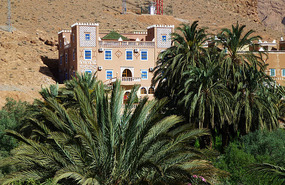
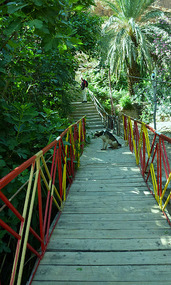
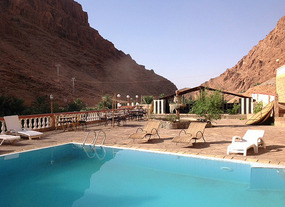
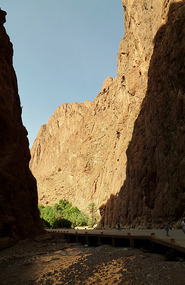
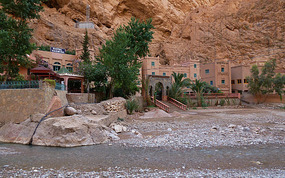
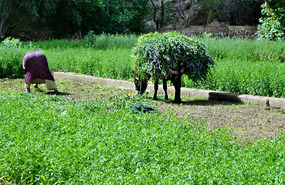
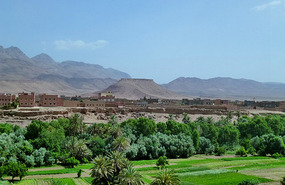
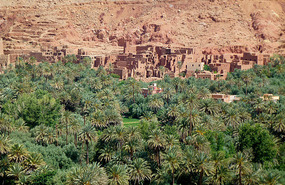
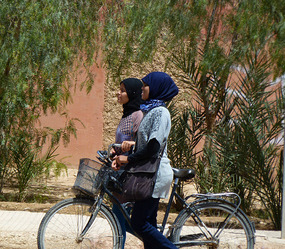
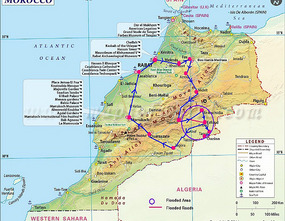
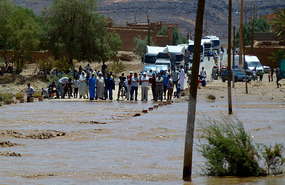
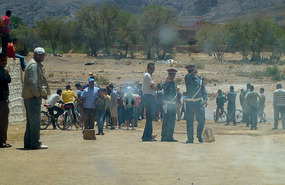
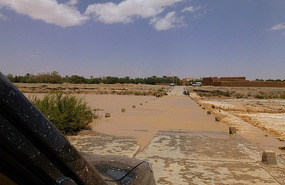
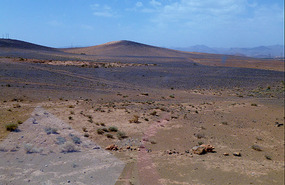
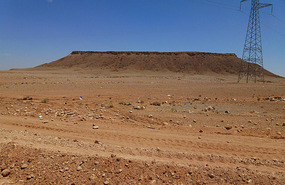
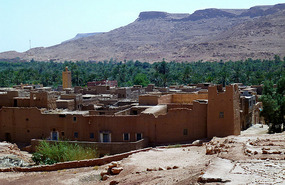
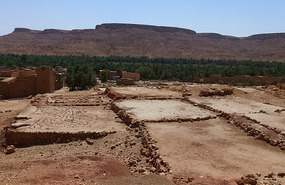
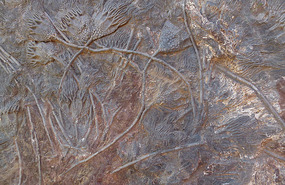
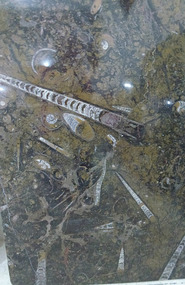
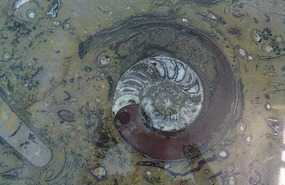
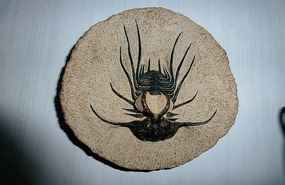
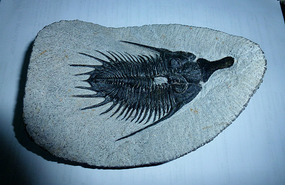
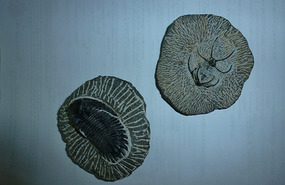
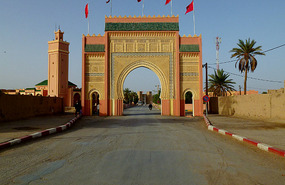
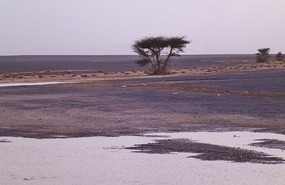
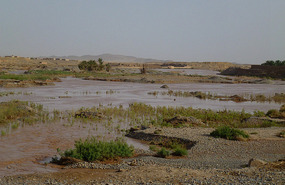
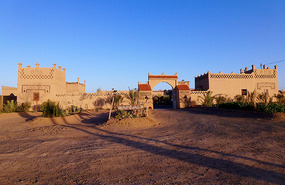
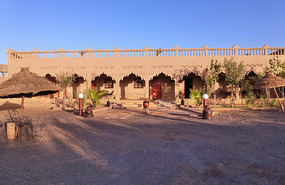
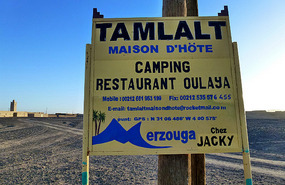
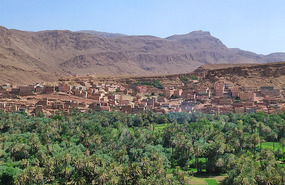
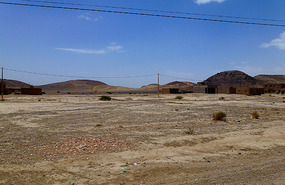
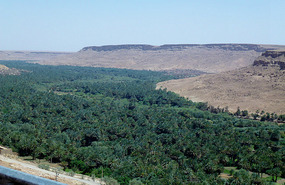
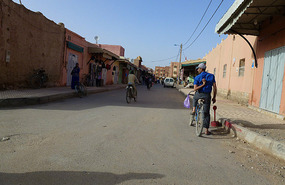





2025-05-22